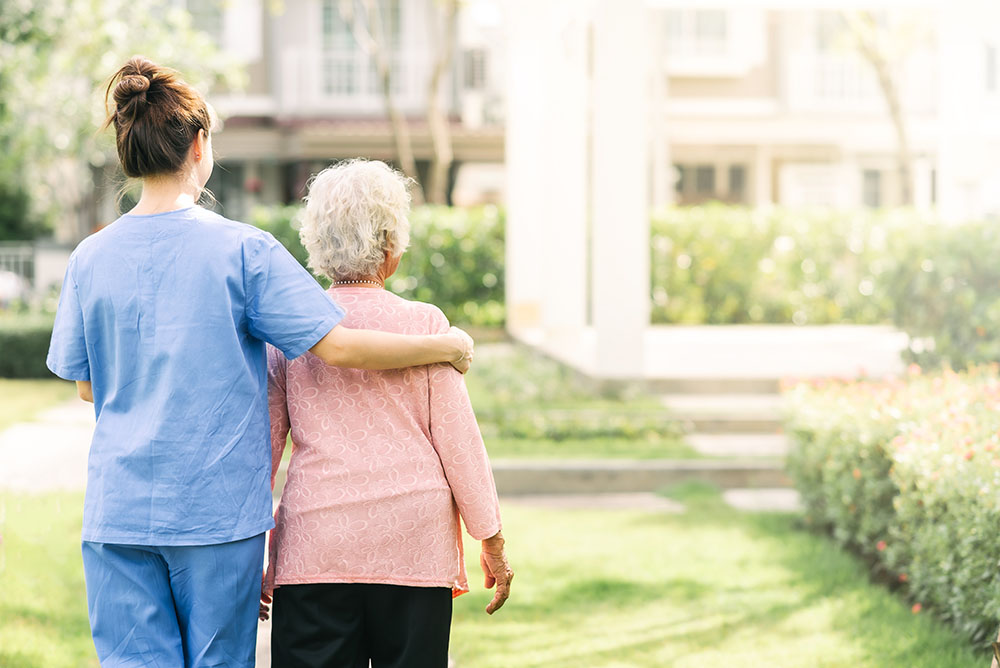
How the Centers for Medicare and Medicaid Services is Responding to Covid-19 in Nursing Homes
Nursing homes, one of the smallest population sets in the US, account for the largest demographic percentage of COVID-19 deaths. Statistics vary, but most accept that elder Americans in nursing homes account for at least 40 percent of all US coronavirus deaths. This tragic statistic is, in part, attributed to older peoples’ less robust immune systems and to nursing home environments that are not aggressively addressing concerns that will reduce residents’ exposure to COVID-19.
Enter the Centers for Medicare and Medicaid Services (CMS) regulatory change now in place. Today the nation’s 15,400 Medicare and Medicaid-certified nursing homes have immediate access for CMS staff training programs addressing COVID-19 infection control and cleanliness. Also available is CMS training for nursing home management to increase telehealth implementation, emergency preparedness, and vaccine delivery systems. Originally announced in late July 2020 as part of a 5-billion-dollar coronavirus relief fund for nursing homes, this action is unprecedented. According to Seema Verma, administrator of the Centers for Medicare and Medicaid Services, the program will “…ensure that nursing homes are doubling down on efforts to prevent the spread of the virus”. Online participation in this CMS infection control program allows for enhanced funding for nursing homes by the federal government.
CMS provides five training modules for staff and ten modules for management through its Quality, Training, and Education portal (QSEP). Staff training includes “CMS Targeted COVID-19 Training for Frontline Nursing Home Staff,” which directly targets the most common concerns identified by surveyors and government strike teams. The goal is to address and amp up basic infection control and prevention practices. The management training tool is entitled “CMS Targeted COVID-19 Training for Nursing Home Management,” and beyond targeting infection control and cleanliness, it also addresses institution-wide issues like increasing telehealth options, vaccine delivery, and emergency preparedness. An additional program known as Quality Improvement Organizations (QIOs) will incorporate these CMS training modules into nursing home action plans in a collaborative way on a case by case basis. This program ensures quality control for CMS-approved nursing home training. Additionally, bi-weekly webinars from subject matter experts will further educate nursing home providers. These webinars will run through January 7, 2021.
Rigorous COVID-19 testing is also part of the regulatory change affecting nursing homes and other senior living facilities. Results from regular coronavirus testing of staff and the offer to test residents will all be reported to CMS for data retention and diagnosis. According to Seema Verma, surveyors noting non-compliance with new testing regulation requirements will cite facilities and implement a correction plan. There will be fines assessed for non-compliance. A first offense will start at 400 dollars per day and run up to 8,000 dollars a day. The ultimate threat for non-compliance will be the termination of Medicare and Medicare programs associated with the facility. Any resident who shows symptoms of COVID-19 at a nursing home or in the event of an outbreak within the facility will be provided proper testing to assess infection.
These new stipulations are part of the Coronavirus Aid, Relief, and Economic Security (CARES) Act provisions. Complete details for the new surveillance, reporting, and testing requirements from CMS regarding the CARES Act effects on nursing homes, hospitals, labs, and physicians are available online. These new rules will dramatically accelerate the tracking and control of the spread of COVID-19, according to CMS, and sub-regulatory guidelines will be issued soon. The testing focus will be based on coronavirus positivity rates rather than by geographic location. Positivity rates below 5 percent in a surrounding county will require once-a-month testing, while a 5 to 10 percent positivity rate would require once-a-week testing. Any positivity rate higher than 10 percent will require testing twice a week.
These new CMS regulations are the guidelines, training, telehealth and vaccine preparedness, and non-compliance fines addressing COVID-19 cases assuring all Americans that nursing homes and other elderly living facilities will be vigilant in swift identification prevention of COVID-19 cases. It also increases testing for all Americans, where it is most needed according to positivity rates. CMS’s timing is excellent as we head into autumn when seasonal flu and cold instances can be confused with the coronavirus.
We help families plan when there is a need for long-term care. Medicaid planning may be appropriate for your or a loved one. If you’d like to discuss your options, please give us a call.
